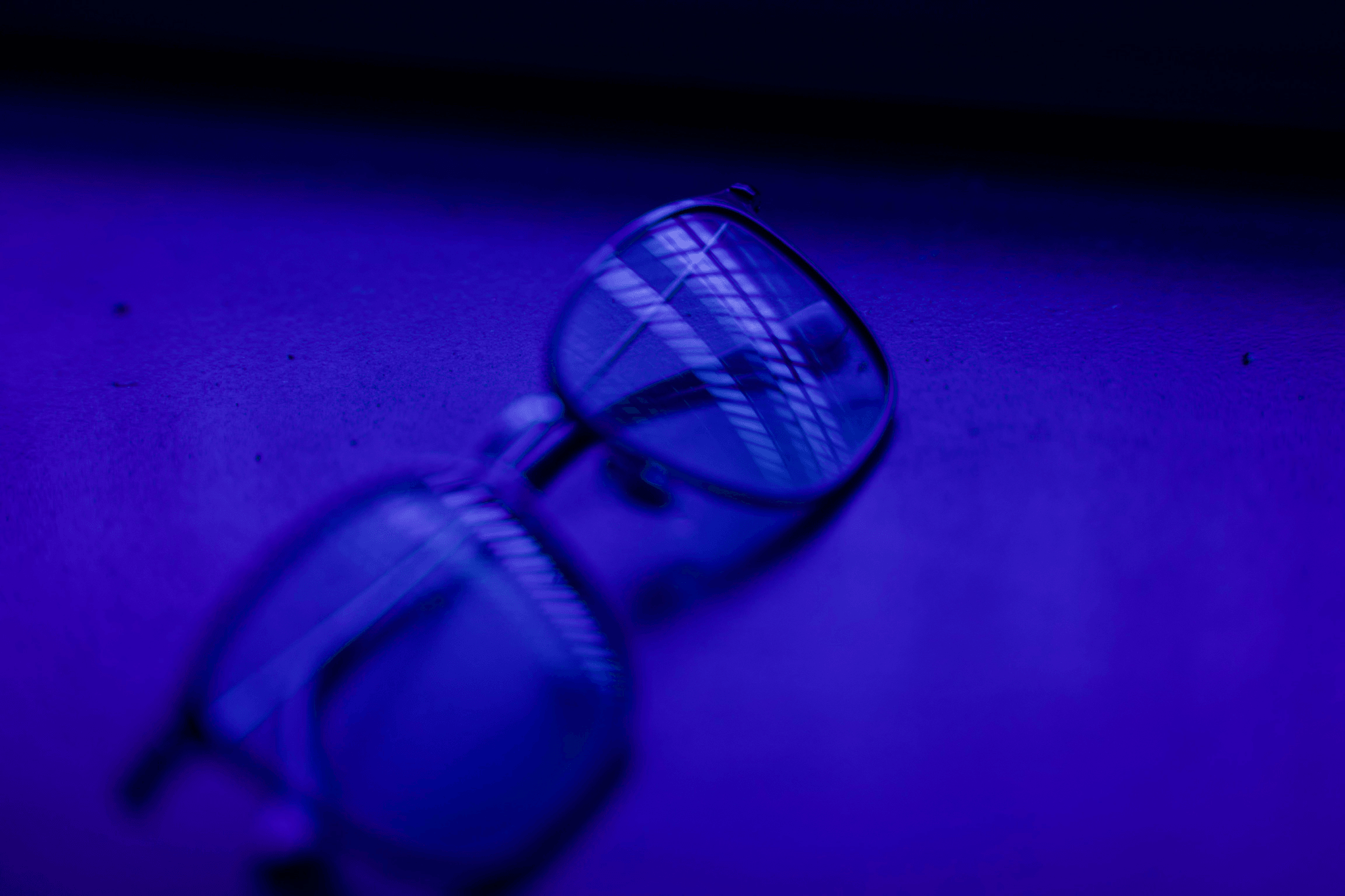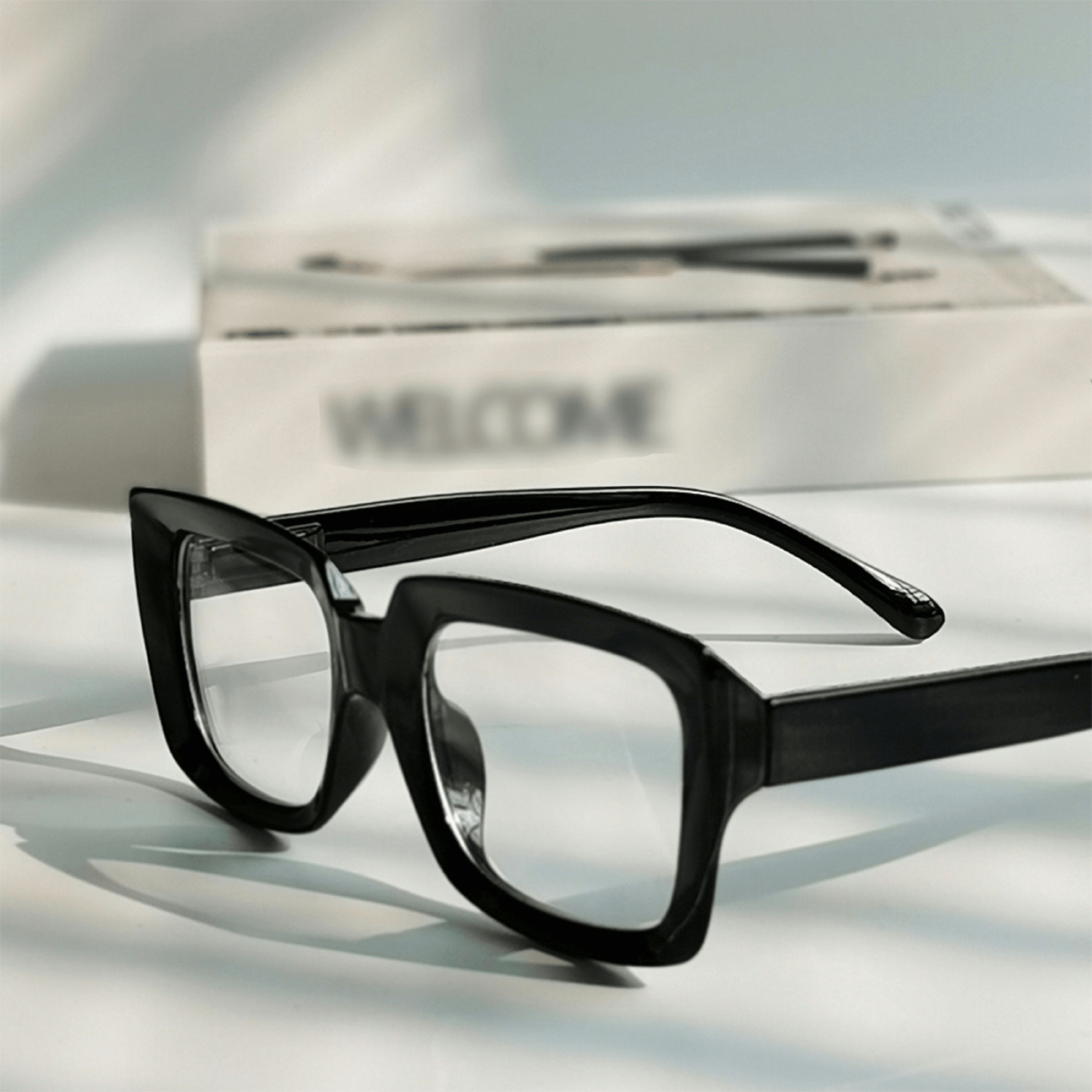Introduction

In an age where screen time dominates our daily routines, understanding the tools we have at our disposal is essential. Transition lenses have emerged as a popular eyewear solution, promising to adapt to changing light conditions while offering varying levels of protection. But do transition lenses block blue light? As we delve into this topic, we’ll explore their effectiveness for computer work, their impact on light-sensitive eyes, and how they stack up against dedicated blue light lenses.
Understanding Transition Lenses
Transition lenses are designed to automatically adjust their tint based on the surrounding light conditions, darkening in bright sunlight and clearing indoors. This unique feature makes them a convenient choice for many wearers who want versatility in their eyewear without constantly switching between pairs. However, one question that often arises is whether these lenses can effectively filter out harmful blue light emitted from digital screens.
The Rise of Digital Eye Care
With the increasing reliance on technology for work and leisure, digital eye care has become more crucial than ever. Many individuals now experience discomfort from prolonged exposure to screens—leading to inquiries about solutions like transition lenses. As people seek answers about Are transition lenses good for computer work? it's vital to examine how these innovative lenses can support eye health in our tech-centric world.
Defining Blue Light
Blue light is part of the visible spectrum and is emitted by various sources, including sunlight and electronic devices like smartphones and computers. While it plays a role in regulating sleep cycles and mood, excessive exposure can contribute to digital eye strain and discomfort—prompting concerns about its long-term effects on vision health. This raises further questions: Which lens blocks the most blue light? and Do transition lenses help with light sensitivity? as people search for effective protective measures.
Do Transition Lenses Block Blue Light?

The Science Behind Transition Lenses
Transition lenses utilize photochromic technology that allows them to react to UV rays by darkening when exposed to sunlight. This process involves molecules within the lens that change structure in response to UV exposure, providing a level of protection against harmful rays. However, while they excel at blocking UV light, the ability of transition lenses to filter blue light is less straightforward; they may reduce some blue light exposure but not as effectively as dedicated blue light blocking lenses.
How Blue Light Affects Our Eyes
Blue light is part of the visible spectrum and has been linked to various eye issues, particularly with prolonged screen time. It can cause digital eye strain, leading to discomfort symptoms such as dryness, fatigue, and blurred vision—questions like Are transition lenses good for computer work? arise because many people spend hours in front of screens each day. Understanding how blue light affects our eyes helps us make informed choices about eyewear; while transition lenses offer some protection, they might not be sufficient for everyone.
Transition Lenses vs Blue Light Lenses
When comparing transition lenses vs blue light lenses, it's essential to consider what you need from your eyewear. While transition lenses provide versatility for outdoor activities by blocking UV rays and adapting to varying lighting conditions, specialized blue light filtering glasses are designed specifically for screen use and can block a higher percentage of harmful wavelengths. So if you're wondering which lens blocks the most blue light or whether transition lenses help with light sensitivity—it's clear that dedicated solutions may be more effective for those specific needs.
Are Transition Lenses Good for Computer Work?

Comfort in Front of Screens
Transition lenses are designed to adjust to varying light conditions, which can provide a level of comfort when moving between indoor and outdoor environments. However, while they may darken outdoors, indoors they often remain clear, leaving users wondering: do transition lenses block blue light? Although they do offer some protection against harmful rays, their primary function isn't specifically aimed at filtering blue light emitted by screens. For those who spend significant time on computers, dedicated blue light blocking lenses might be more effective than traditional transition lenses.
Protecting Against Digital Eye Strain
Digital eye strain is an all-too-common issue in our tech-driven world; symptoms include dryness, irritation, and fatigue after long hours in front of screens. Transition lenses can help mitigate some discomfort due to their adaptive nature but may not fully address the specific needs associated with digital eye strain. So the question remains: which lens blocks the most blue light? Generally speaking, specialized blue light lenses are crafted with specific coatings that target blue light more effectively than standard transition lenses.
Real User Experiences
User experiences with transition lenses vary widely when it comes to computer work; some find them helpful for general use while others voice concerns about their limitations. Many users report that while transition lenses provide decent protection outdoors and reduce glare from sunlight, they still experience discomfort during extended screen time—prompting them to wonder about alternative options like dedicated blue light blocking glasses or even asking themselves what are the drawbacks of transition lenses? Ultimately, personal preference plays a crucial role; those who prioritize comfort during screen time might lean towards specialized solutions rather than relying solely on adaptable eyewear.
Do Transition Lenses Help with Light Sensitivity?

Light sensitivity, or photophobia, can be a significant issue for many individuals, making outdoor activities or even indoor lighting uncomfortable. Transition lenses offer a potential solution by darkening in response to bright light, which may help alleviate some discomfort for light-sensitive eyes. The ability of these lenses to adjust to varying light conditions raises the question: are transition lenses good for light-sensitive eyes?
Benefits for Light-Sensitive Individuals
For those who experience discomfort from bright lights, do transition lenses block blue light effectively? While their primary function is to adapt to sunlight by darkening, they also provide some level of protection against harsh lighting conditions that can exacerbate sensitivity. This adaptability makes them a popular choice among individuals who struggle with glare and brightness.
Moreover, transition lenses can reduce the intensity of both natural and artificial lights, which is particularly beneficial in environments like offices or classrooms where fluorescent lights dominate. By minimizing exposure to uncomfortable brightness levels, users often find themselves more comfortable and less fatigued throughout the day. This leads many to wonder whether transition lenses are good for computer work as well.
Recommendations for Sensitive Eyes
If you have light-sensitive eyes and are considering your options, it’s essential to evaluate what works best for you—especially when comparing transition lenses vs blue light lenses. While transition lenses provide relief from bright sunlight and glare, blue light blocking glasses specifically target digital screens' harmful rays that contribute to eye strain and fatigue. Therefore, if your primary concern is screen time rather than outdoor brightness, you might want to explore dedicated blue light filtering options.
In addition, it's wise to consult with an eye care professional who can recommend the most suitable lens type based on your specific needs. They may suggest combining both types of lenses if you frequently switch between outdoor activities and screen use. Ultimately, understanding how do transition lenses help with light sensitivity will empower you in making an informed decision about your eyewear.
Expert Opinions on Transition Lenses
Eye care professionals generally agree that while do transition lenses block UV light effectively—making them great for outdoor usage—they may not provide sufficient protection against all forms of digital eye strain caused by prolonged screen exposure. Many experts advocate that individuals with severe sensitivity consider specialized eyewear designed specifically for blue light filtering instead of relying solely on standard transition options.
Additionally, user feedback indicates mixed experiences; some appreciate the convenience of having one pair of glasses while others express concerns about whether these versatile options truly meet their specific needs in various environments—prompting questions about what are the drawbacks of transition lenses? As technology evolves and awareness around eye health increases, it’s crucial that consumers stay informed about all available solutions tailored toward individual sensitivities.
What Are the Drawbacks of Transition Lenses?

While transition lenses offer a convenient solution for many, they are not without their drawbacks. Understanding these limitations is essential for anyone considering whether to invest in them. From versatility concerns to specific environmental challenges, let’s dive into the potential pitfalls of transition lenses.
Versatility vs Specificity
Transition lenses are celebrated for their versatility, allowing users to seamlessly shift from indoor to outdoor environments without needing multiple pairs of glasses. However, this very versatility can be a double-edged sword. For those asking, Do transition lenses block blue light? it’s crucial to note that while they do offer some protection against blue light, they may not be as effective as specialized blue light lenses designed specifically for computer work or digital environments.
Limitations in Different Environments
One of the most significant limitations of transition lenses is their performance in various lighting conditions. For instance, indoors, they may not darken sufficiently under artificial lighting compared to natural sunlight. This raises the question: Are transition lenses good for computer work? The answer isn’t straightforward; while they provide some protection against glare and UV light outdoors, their ability to combat digital eye strain indoors might leave something to be desired.
User Feedback and Insights
User experiences with transition lenses can vary widely based on individual needs and expectations. Many users appreciate the convenience but also express concerns about how well these lenses perform during specific activities like reading or working on screens—prompting questions like Which lens blocks the most blue light? Feedback often highlights that while transition lenses help with light sensitivity during outdoor activities, they might not suffice for those who spend long hours in front of screens asking if do transition lenses help with light sensitivity. Overall, understanding user insights can provide valuable guidance when considering whether these versatile yet sometimes limiting options are right for you.
Do Transition Lenses Block UV Light?

Transition lenses are designed not only for their convenience in adapting to light conditions but also for their ability to provide UV protection. Understanding how these lenses work in blocking harmful ultraviolet rays is crucial for anyone considering them as a part of their eyewear arsenal. After all, the sun is relentless, and protecting your eyes should be a top priority.
Understanding UV Protection
UV protection is essential because prolonged exposure to ultraviolet light can lead to serious eye conditions such as cataracts and macular degeneration. Transition lenses are equipped with technology that allows them to block 100% of UVA and UVB rays when they darken outdoors, effectively shielding your eyes from potential damage. This means that when you ask, Do transition lenses block UV light? the answer is a resounding yes; they are specifically designed for this purpose.
Transition Lenses and Outdoor Usage
When it comes to outdoor usage, transition lenses shine brightly—literally! As you step outside into the sunlight, these lenses automatically darken, providing instant relief from glaring brightness while simultaneously blocking harmful UV rays. However, some users may wonder if Are transition lenses good for computer work? The answer varies based on individual needs; while they provide excellent outdoor protection, they might not be ideal for screen time indoors due to their adaptive nature.
Choosing the Right Lens for Sun Protection
Choosing the right lens involves more than just picking up any pair of transition lenses off the shelf; it's about understanding your lifestyle needs and preferences. If you're frequently outdoors or sensitive to light, you might want to consider options that offer enhanced UV protection alongside blue light filtering capabilities. This leads us back to an important question: Which lens blocks the most blue light? While transition lenses do provide some level of blue light filtration, dedicated blue light blocking lenses may be more effective if you spend significant time in front of screens.
Conclusion

In a world increasingly dependent on screens and outdoor activities, choosing the right eyewear is crucial. Whether you are concerned about how well do transition lenses block blue light or pondering if they are good for computer work, understanding your options can make all the difference. As we wrap up, let’s explore how to find the perfect lens for your lifestyle.
Finding the Right Lens for Your Needs
If you’re frequently in front of screens, you might wonder if transition lenses are good for computer work, especially with their ability to adjust to light changes. However, if digital eye strain is a concern, you might want to consider dedicated blue light lenses that specifically target harmful wavelengths—after all, which lens blocks the most blue light?
For those who experience discomfort from bright lights or glare, asking whether transition lenses help with light sensitivity can lead to more informed decisions. It's essential to weigh the benefits against potential drawbacks; after all, what are the drawbacks of transition lenses? Factors like performance in different lighting conditions and user experiences can guide your choice toward a lens that suits your unique requirements.
Transition Lenses and Modern Eyewear Solutions
Transition lenses have evolved into a popular choice among modern eyewear solutions due to their versatility and convenience. They offer protection from UV rays while adapting seamlessly between indoor and outdoor environments—do transition lenses block UV light? This dual functionality makes them appealing for individuals who lead active lifestyles but may not provide specialized protection against blue light emitted by screens.
While many users appreciate their adaptability, some may find that they don't fully address specific needs such as prolonged screen time or severe light sensitivity. In these cases, exploring options like dedicated blue light glasses could prove beneficial—especially when considering whether transition lenses vs blue light lenses might be more effective based on your daily activities.
Elevate Your Eyewear with Daposi
Elevating your eyewear game doesn’t have to be complicated; it just requires knowing what works best for you! With brands like Daposi offering stylish designs alongside functional features like UV protection and anti-reflective coatings, finding suitable options becomes easier than ever. Whether you're curious about how do transition lenses block blue light or simply want chic frames that cater to sensitive eyes, Daposi has something for everyone.
Ultimately, investing in quality eyewear tailored to your lifestyle will enhance both comfort and visual clarity—so don’t hesitate! Explore various options and consult professionals when needed; after all, understanding do transition lenses help with light sensitivity can lead you toward a brighter future—pun intended!
